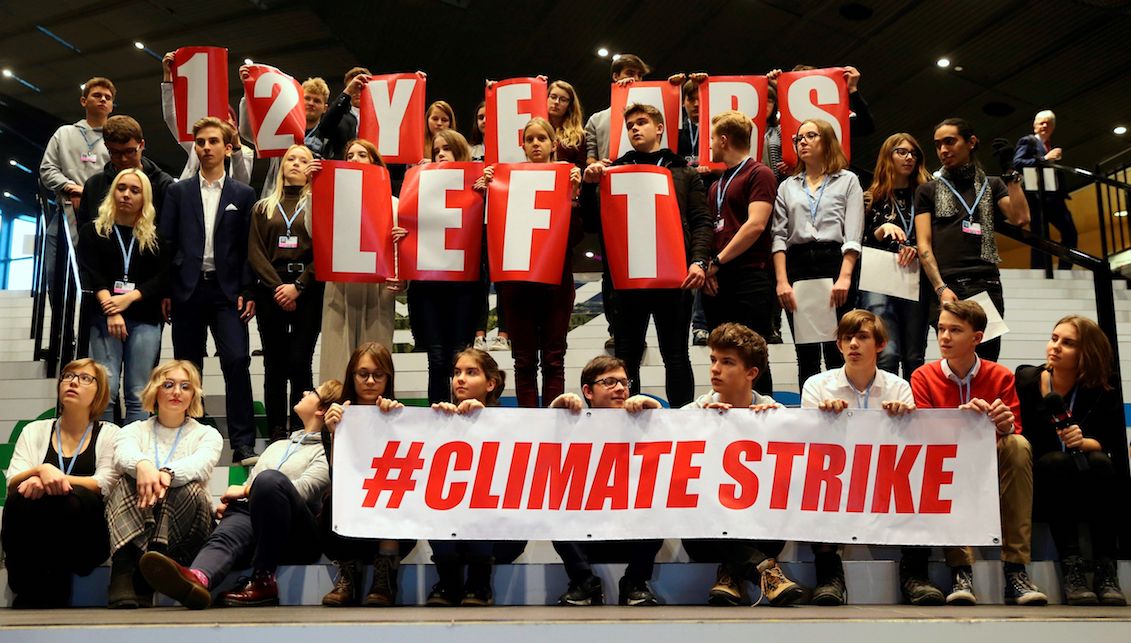
On Climate Change: a lot of talk, but little action
Around 200 countries met over the past two weeks to reach an agreement on climate change. Amid handshakes and disagreements, the session came to an end last…
The debate on Climate Change in the 21st century has become, paradoxically, increasingly medieval.
As if we were questioning the existence of gravity or the fact that the earth is round, a handful of countries - including the United States - insist on dismissing the scientific facts behind the seriousness of global warming, just to protect the primitive economic models upon which their nations are structured.
With the announcement that Donald Trump would withdraw the United States from the Paris Climate Agreement, the United Nations has insisted on ensuring that the rest of the world remains committed to the Agreement's efforts to reduce carbon dioxide emissions.
To this end, the 24th Conference of the Parties (COP24) of the United Nations Convention on Climate Change organized a two-week conference to "hammer out critical the details of the Paris climate agreement,” reinforcing the commitment of the countries to "limit global warming to 2 degrees Celsius above pre-industrial levels by 2100 at most," explained Vox.
However, new scientific discoveries have determined that these measures are not enough, and that something should be done almost immediately in order to avoid uncontrollable natural consequences that would put human life in danger.
The Intergovernmental Panel on Climate Change (IPCC), which is comprised of the world's leading climate scientists, “warned two months ago that allowing warming to reach 1.5º C above pre-industrial levels would be serious consequences, including the death of coral reefs and the devastation of many species," reported The Guardian.
In order to control it, humanity will only have a decade before massive floods and uncontrollable fires endanger populations, and irremediably affect agricultural production.
While many countries have agreed that infrastructure, coal exploitation, and widespread economic dependence on oil are key factors of climate change, countries such as the United States, Russia, Saudi Arabia and Kuwait have come together in opposition to the IPCC's findings, issuing a joint statement that resulted in "a weak commendation of the timing of the scientists' report," The Guardian continued.
President Trump in particular has waged a campaign against the science behind climate change, adopting government measures to eliminate the restrictions imposed by the Obama Administration. He has furthermore given the green light for the exploitation of coal and drilling in natural parks.
RELATED CONTENT
His decision has been critical for environmentalists who fear that the decision by one of the world's foremost emitters of greenhouse gases will inspire other countries to follow suit.
As the Washington Post explains, while the Polish agreement "prods countries" to improve their efforts to combat climate change, "it does not bind countries to hit their targets."
Polish environmental official Michal Kurtyka said on Saturday that this type of agreement is driven "by our sense of humanity and commitment to the well-being of the earth that sustains us and the generations that will replace us."
Similarly, the new Brazilian government has announced that it has doubts about the scientific basis of climate change, and has withdrawn its offer to host the next conference next year.
2020 will be the key year to show that something has really been achieved after so many discussions on the issue, It will also be the year that the withdrawal of the United States from the Paris Agreement will take effect.
All of this could change if Donald Trump is not re-elected, and a new president decides to cooperate once again, for the good of the entire planet.











LEAVE A COMMENT: